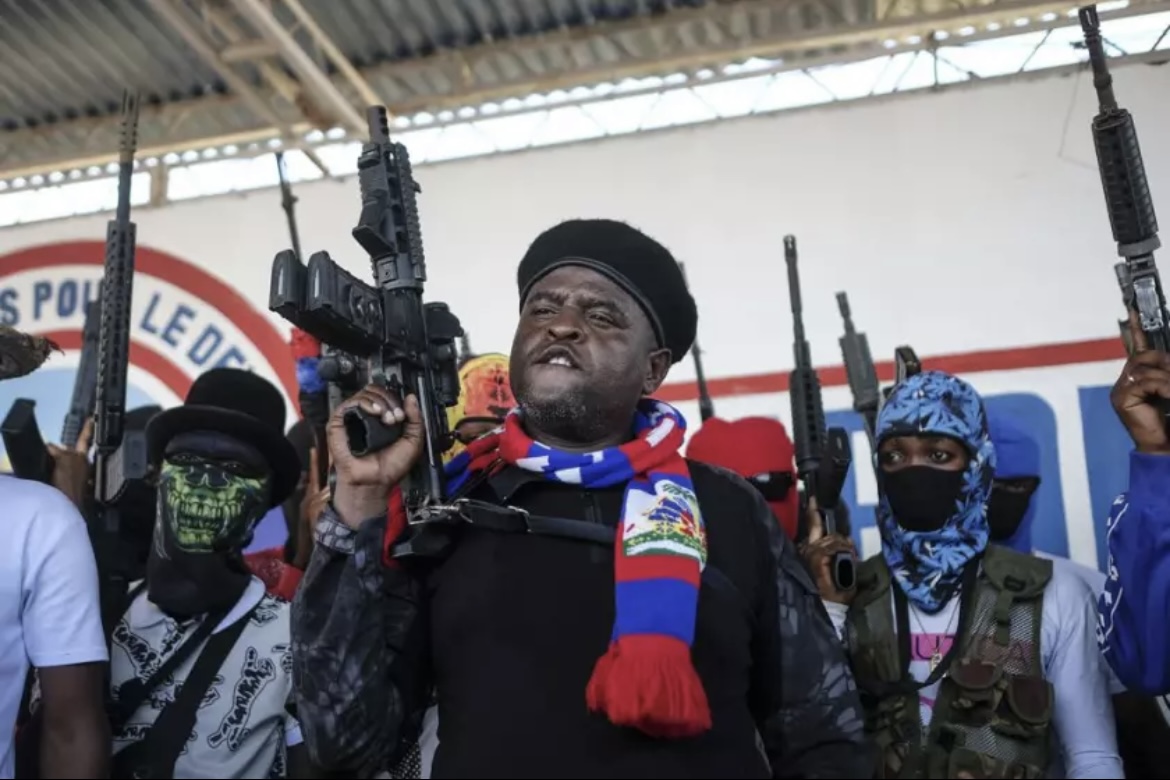Kenyan police have officially arrived in Haiti, signalling the beginning of Kenya’s long awaited deployment to Haiti as the head of the Multinational Security Support (MSS) mission.
Boots on the Ground
The very first Kenyan delegation of many has arrived in Port-au-Prince, the capital city of Haiti. The delegation numbers approximately 50 people, who are likely there to assist in necessary preparations for the arrival of more personnel later in the week.
Des kenyans à port au Prince ce lundi 20 mai .Une première délégation composée d’une cinquantaine de kenyans est arrivée à port au Prince ce lundi .d’autres groupes plus importants vont suivre cette semaine pic.twitter.com/NpETHLGsBK
— Wendell Theodore (@wentheodore) May 20, 2024
At least 400 more Kenyan personnel are expected to arrive from the 23rd to the 26th of May. The first priority of the Kenyan police officers will be to secure vital state infrastructure, including the Toussaint Louverture Airport, which has been closed since it was attacked by gangs in early March.
Kenya has committed 1,000 police officers to the MSS. There is no established timeline for when the deployment will hit its full extent.
Kenya, who heads the force, is to be joined by several other nations. Jamaica, Bangladesh, Barbados, the Bahamas, Benin, and Chad have additionally pledged their own police officers, although it is unclear when exactly they will be deployed. These nations were all waiting upon Kenya to deploy, and so they are likely to deploy their own force soon now that Kenya has finally deployed officers.
Earlier this month, civilian contractors arrived in Haiti in order to construct a living quarters for the officers of the MSS, and the Kenyan police force being deployed gathered in Kenya for the first time since March, signalling the proximity of the deployment.
Long Awaited
Kenyan President William Ruto first announced Kenya’s intention to head the force in July of 2023, answering the call for such an intervention made by former Haitian Prime Minister Ariel Henry a year prior, in 2022.
The deployment was approved by the UN Security Council in October, however has faced a series of legal challenges from opposition politicians. These challenges caused Kenyan courts to strike down the deployment on several occasions. However, in one of the latest rulings, the Nairobi High Court stated it would permit the deployment with the existence of a “reciprocal agreement” signed between Kenya and Haiti. In early March, this agreement was signed between President Ruto and PM Henry in Kenya.
When PM Henry attempted to return to Haiti, the nations’ gangs, primarily the G9 alliance headed by former police officer Jimmy ‘Barbecue’ Cherizier, launched attacks throughout the nation, though primarily concentrated in Port-au-Prince.

These attacks prevented PM Henry from returning to Haiti, and forced his resignation. The PM’s resignation called into question the validity of the agreement, and the deployment was delayed pending the political situation in Haiti.
However, with the establishment of a transitional government, the deployment was set back on track, although no date for the deployment was given publicly.
Purpose of the Deployment, and Problems they will Face
The key purpose of the MSS is to assist Haiti’s outnumbered and largely outgunned police force in combatting the myriad of gangs that plague Haiti. These gangs regularly launch attacks upon civilians, and are responsible for thousands of murders each year, including over 2000 this year.
The MSS is to assist in buffing up Haiti’s ranks, carry out arrests, and directly combat the gangs if necessary.
However, there are a few problems the MSS will face.
The first, is that the G9, among other gangs, have vowed to violently oppose any foreign intervention. This means there is a likelihood that Kenyan forces, and the others of the MSS, will be subject to significant attacks by Haitian gangs.
The second, is that some critics, including within the Kenyan political sphere, have claimed that Kenya’s police force is ill equipped to take on such a challenge, in both the equipment they have, as well as their training. The mission’s equipment is to be supplied by the UN, however the quality of this equipment remains to be seen.
Thirdly, is that Haiti’s prison system is simply not big enough to handle mass arrests of gang members. Assuming the success of the MSS in arresting many of Haiti’s gang members, the question of where to put them has been raised, and not yet answered.
Fourth, is that Haitian civilians are rather wary of any foreign interventions. The UN’s intervention mission in Haiti left behind a devastating legacy, being the cause of a cholera outbreak as well as several prominent cases of sexual abuse.
Although they face a significant amount of hurdles, only time will tell the true effectiveness of the MSS.


